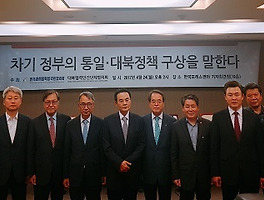728x90
반응형
.
“What’s your marriage score? Find out for free!”
Hyung Jik (pseudonym) is a 38-year-old defector from North Korea. On his smartphone one day, he decided to search for the keywords 'free' and 'marriage,' and landed on a website offering to inform users of their "marriage score." After staring at the website’s picture of a well-matched couple for a while, Hyung Jik clicked the button.
He proceeded through a quick ‘yes or no’ survey, and ended up clicking through to the end. That’s when he received a call from a company representative.
“Hello sir, how can I help you?” the representative asked.
A pretty female voice came through the line. Hyung Jik, a single man, asked, “Can you help me get married?”
.
“Yes, if you provide us with some information including your name, age, salary, hometown, etc, we’ll let you know if it’s possible to connect you with a female member of our network. If you provide us with documents to complete the identity verification process, we can speed things along,” the representative responded.
Slightly taken aback by the rapid progress of the conversation, Hyung Jik responded, “Well, I’m from North Korea.” Hearing this, the representative responded, “What’s that? North Korea? You’re a defector? If so, I’m afraid you’re ineligible to become a member.”
Hurt by this turn of events, Hyung Jik replied, “I am a citizen of the Republic of Korea. Why am I not allowed to join because I’m a defector?” The conversation between Hyung Jik and the representative became tense. Despite Hyung Jik’s attempts to get an explanation, the representative responded brusquely, “Defectors are absolutely not allowed to join,” and then hung up.
After the call, Hyung Jik discussed the incident with his friends. He explained what happened and asked why he was subject to such discrimination. Having come to South Korea alone, he explained, “I tried to use the service because I was bored and lonely. The response I got was shocking.”
Hyung Jik elaborated on his feelings about the incident, saying, “I can understand that they wouldn’t want to advise me if I had financial problems, or didn’t have adequate schooling. But to reject me just because I’m a defector? That’s too much. The agency owes me an apology. I think this shows that there’s still a long way to go for South Korean society in developing a positive perception of defectors.”
30 year old Ga Hui also experienced discrimination one year after she arrived in South Korea. As she didn’t have much time to adjust to life in the South, she retained her North Korean accent. She succeeded in passing the first stage of the selection process for employment, which involved the submission of documents. When she advanced to the interview stage, her interviewer said that they had a good feeling about her.
.
In the end, her efforts to land the job ended in disappointment. Ga Hui ended up sitting for over 20 interviews in the restaurant business, but failed to get a position. The rejections seriously hurt her confidence. None of the interviewers told her directly that they didn’t want to employ a defector. However, according to Ga Hui, the sentiment could be felt.
“I had all the necessary skills to do the job properly. But when the interviewers asked me about my past work experience, all I could do was tell them about my experience in North Korea,” she explained.
“As soon as I told one interviewer that I was a defector, she changed her expression and stopped making eye contact with me.”
Although over 30,000 defectors have now settled into new lives in South Korea, prejudice and discrimination is rife. According to a 2015 survey completed by Seoul National University’s Institute for Peace and Unification Studies, South Koreans tend to feel more distant and cold towards defectors as their relationship with them becomes closer. This means that it’s easier for South Koreans to imagine getting along with defectors as their neighbors or coworkers than it is for them to imagine getting along with them as business partners or spouses.
It is important for South Korean society to distinguish between defectors and the North Korean regime. Many experts note that an empathetic approach will go a long way in helping to overcome discrimination against defectors. Others point out that accommodating defectors within South Korean life is the first step towards unification, and should be pursued proactively.
One expert said on condition of anonymity, “There seems to be a correlation between the tendency of South Koreans to consider defectors ‘second class citizens,’ and a tendency for some defectors to adopt a victim mentality. Rather than putting off these difficult problems for another day, we need to assume an attitude of warmth and pursue real unity.”
http://dailynk.com/english/m/read.php?cataId=nk01501&num=14455
.
반응형
'NK News_IT' 카테고리의 다른 글
| “‘中서 원유 공급 중단’ 소문에 北 휘발유 6000원 폭등” (0) | 2017.05.02 |
|---|---|
| Political parties go head-to-head on North Korea policy ahead of presidential election (0) | 2017.05.02 |
| 미중 정상, 북핵 담판 돌입…트럼프 “中 비협조시 독자 행동” (0) | 2017.04.08 |
| “北, 화학무기 실체 감추는 게 능사 아니다” (0) | 2017.04.07 |
| 산산조각난 ‘김일성 신격화’…“장마당이 우리 수령님” (0) | 2017.04.07 |



